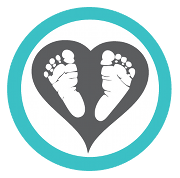One of the greatest discoveries in recent history is the importance of folic acid or folate (one of the B vitamins) in preventing serious neural tube birth defects such as spina bifida and anencephaly (missing brain) and other anomalies. The biggest difference is noted when the woman is already taking folic aid when she becomes pregnant. For this reason we recommend that all women of childbearing age take a daily mulitvitamin containing at least 400 - 500 mcg folic acid. This is because the greatest benefit occurs in the very early development of the baby, withing days and early weeks following conception. Some of the recommended dose of this vitamin will come from a healthy diet, but most people do not get enough from these sources.
Below is a lable example that you might find on a food package.
 This is an example of a supplement label that will tell you how much is contained in the vitamin. Prenatal vitamins and most mulitvitamins do contain the minimal amount required (400 mcg). If you have a history of neural tube defects in your family, the recommendation jumps to 10 times that amount so talk to your doctor about your risk factors.
This is an example of a supplement label that will tell you how much is contained in the vitamin. Prenatal vitamins and most mulitvitamins do contain the minimal amount required (400 mcg). If you have a history of neural tube defects in your family, the recommendation jumps to 10 times that amount so talk to your doctor about your risk factors. Many women wait until they see their doctor for their prenatal care to begin taking vitamins. While important benefits continue in pregnancy, waiting this long to begin can cause you to miss the most important preventive measures you can take - the effects during embryogenesis.
Many women wait until they see their doctor for their prenatal care to begin taking vitamins. While important benefits continue in pregnancy, waiting this long to begin can cause you to miss the most important preventive measures you can take - the effects during embryogenesis. In some cases the doctor advises the woman to not take vitamins if they aggravate her nausea. There is a better alternative though.
- Take the vitamins before getting pregnant (best plan in all cases for optimal results).
- Take a different vitamin if the regular prenatals are intolerable. It's the minerals that add the bulk, making them hard to swallow, and the minerals are often the cause of the problems. You can take a plain, multivitamin without the minerals (especially iron and calcium). If swallowing is the problem, try a chewable adult vitamin. Some doctors recommend children's such as Flintstones but the taste can be gaggy since it's designed for kids, and it may contain the same offending minerals. But, if this works for you, make sure you have the appropriate amounts of recommended nutrients. Typically they contain only 300 mcg folate. Hopefully you will eat dairy products and iron rich foods too.
- Take plain folic acid as a supplement (minimum of 400-500 mcg if no previous history of spinal cord defects).
- In addition to the above, make sure you are eating a diet rich in a variety of foods, especially whole grains and vegetables.
- Add the prenatal vitamin when your body can tolerate it for the full benefit. If you eat iron-rich foods your chances will be decreased for developing anemia which might require additional supplements. Calcium can also be supplemented through dietary increase of yogurt, pudding, cheese, ice cream, etc. or chews such as Viactiv or other brands. Sometimes chewables are easier.
Despite public health campaigns, only around one third of women take folic acid supplements preconceptionally. Please help spread the word!






















No comments:
Post a Comment
This blog only reviews comments before posting to avoid hijacking. We will respond to comments Mon-Thurs but we are closed Fri-Sun and legal holidays.